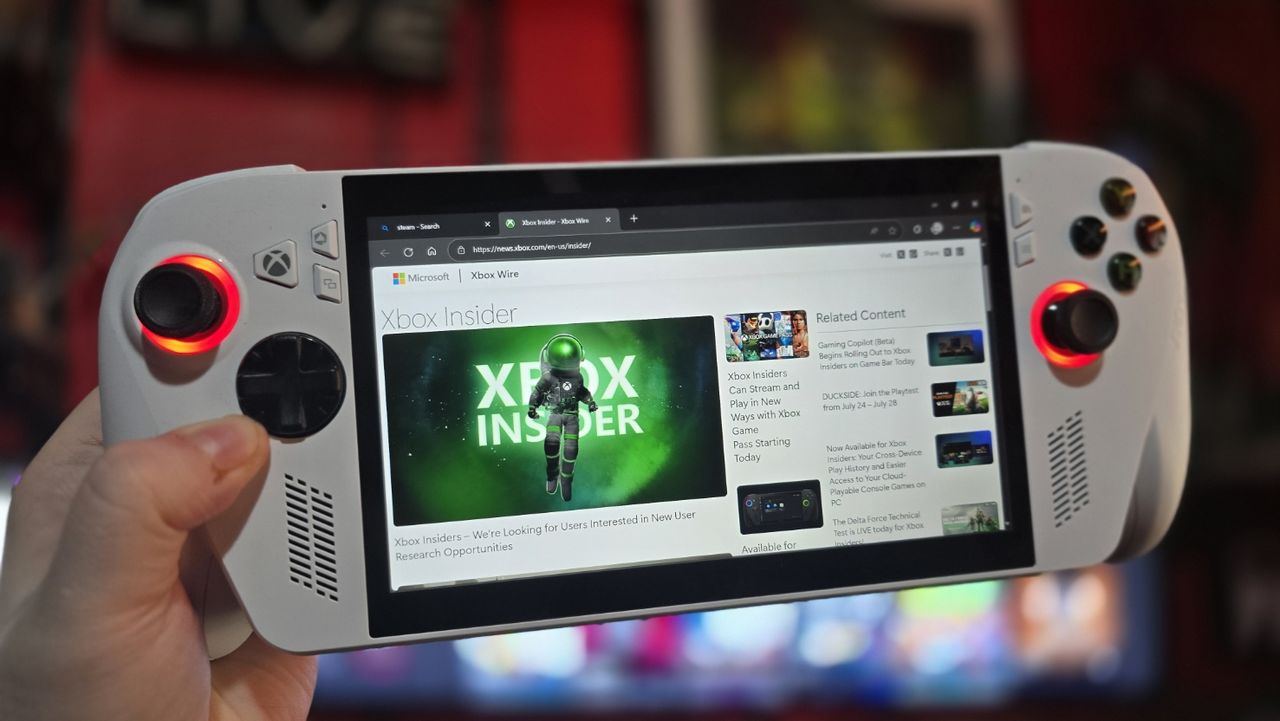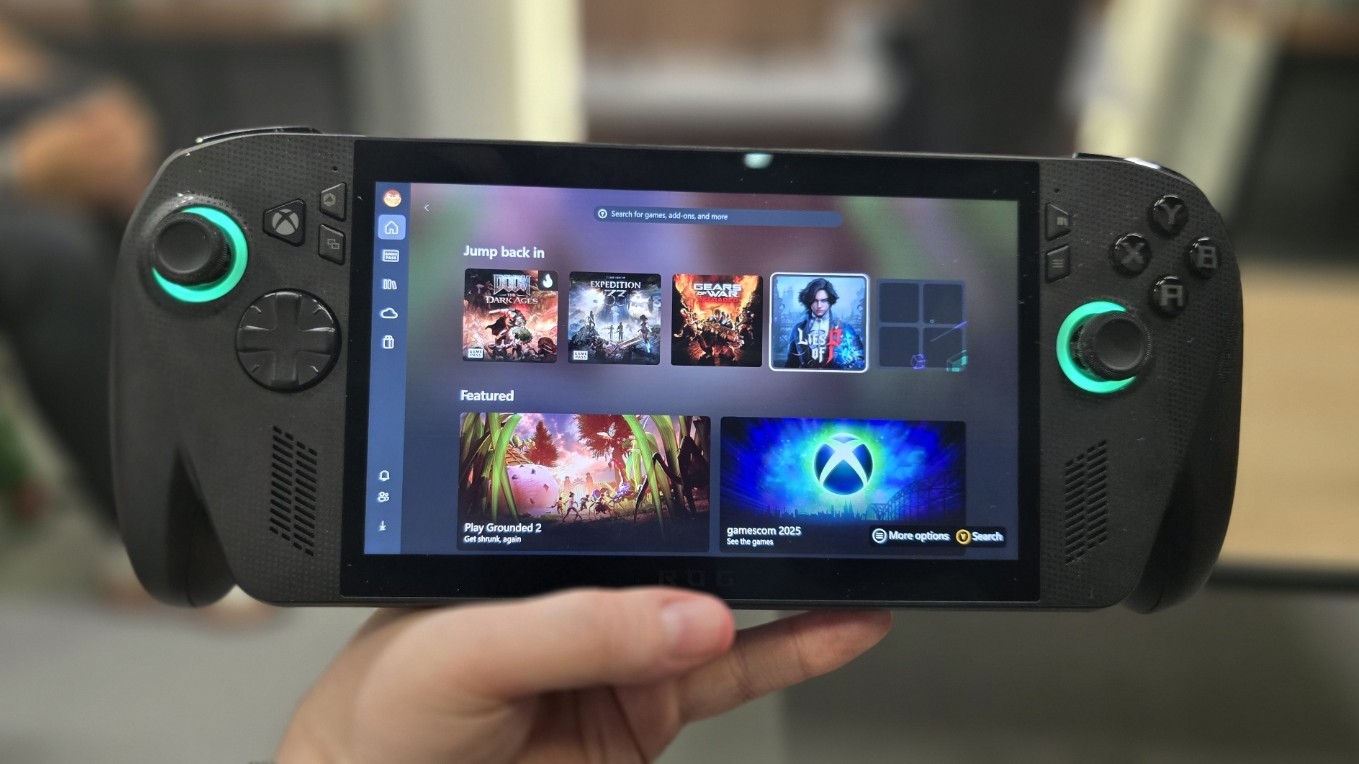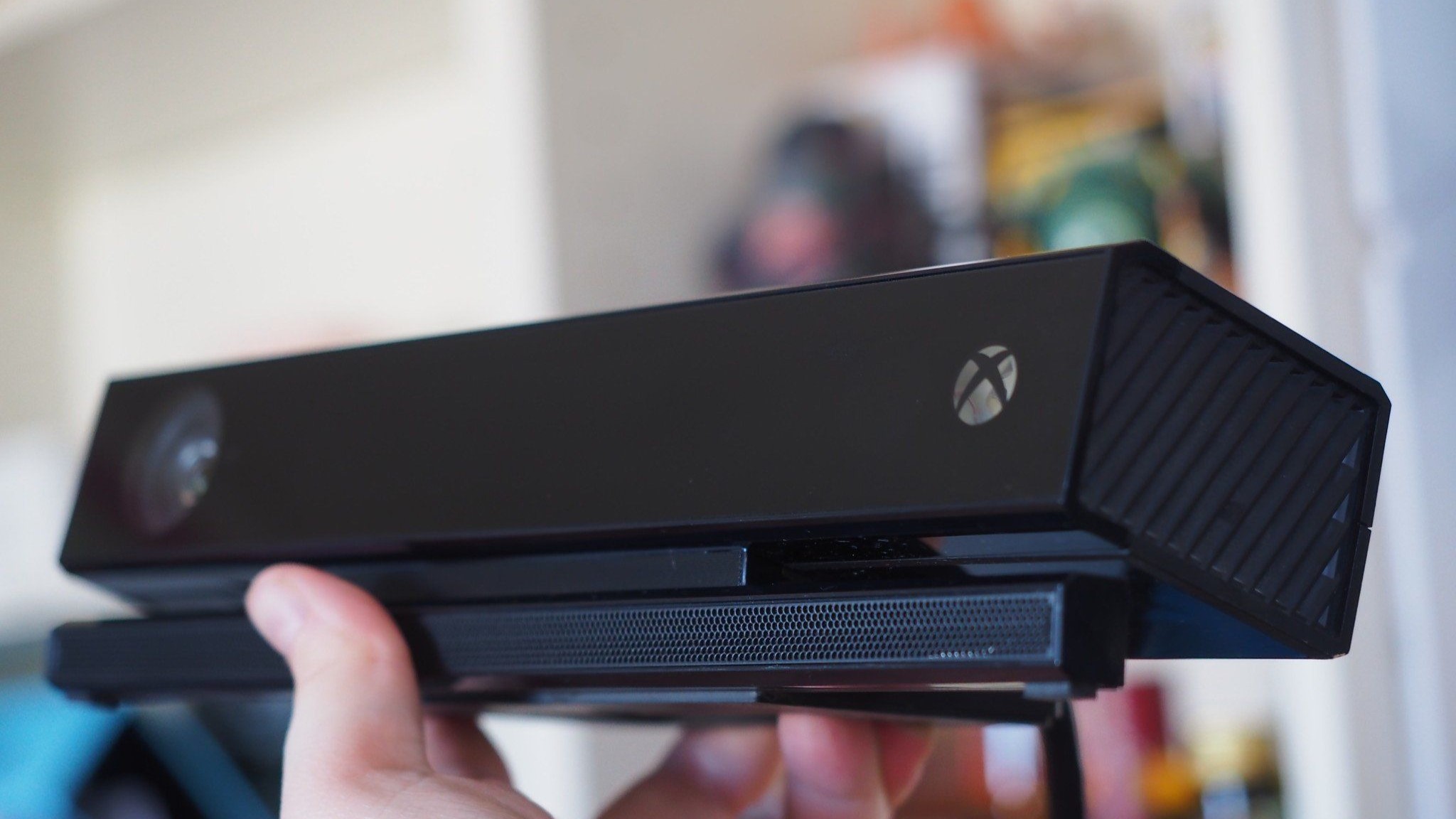
This week, Phil Spencer, the head of Xbox, strongly suggested that a new Xbox console is on the way.
In an interview with Famitsu, Xbox head Phil Spencer shared that the Xbox handheld, known as the Ally, offers a preview of where the Xbox platform is headed.
The Xbox Ally is a handheld gaming PC, not a typical Xbox console. This means it doesn’t play regular Xbox console games directly. Instead, you can play games through cloud streaming, by remotely accessing your Xbox, or by playing PC games that are also available on Xbox through the Play Anywhere program.
Xbox Play Anywhere has been a fantastic way to play games across different devices, offering hundreds of great titles with a single purchase and the ability to save your progress anywhere. While Microsoft has greatly expanded this program, it doesn’t mean games will work on any Xbox console – it’s a convenient feature, but not a replacement for full console compatibility.
Microsoft revealed this summer they’re working with AMD on the next generation of Xbox, promising players will still be able to play their existing games. However, in a recent interview, Phil Spencer strongly suggested the new Xbox will essentially be a powerful gaming PC, which is what many fans have anticipated.
This approach offers significant potential benefits, but it also carries serious risks if not handled carefully.
The Xbox Ally is a beta test for the next-gen Xbox

It’s pretty much certain that the next Xbox will be built around a standard Windows PC. The goal is to still feel like a traditional Xbox console, similar to what you’re used to. But unlike the Xbox Series S/X, the new Xbox will use powerful AMD chips that can play your existing Xbox games, as well as titles from stores like Steam, GOG, and Epic Games – even games normally found on PlayStation. It’s designed to be a powerful, living room-friendly gaming PC. You could even use it for things beyond gaming, like schoolwork or programs like Adobe Premiere and Microsoft Office, if you want.
Right now, the experience on the Xbox Ally isn’t good enough. PC gamers are increasingly frustrated with Windows, and Xbox console players aren’t thrilled about being pushed into the more complicated world of PC gaming. However, there’s a real chance to improve things and create something great.
Microsoft hasn’t traditionally focused heavily on gaming, especially on Windows. Despite adding a lot of extra software over time, Windows remains the most widely compatible operating system ever created, allowing access to games and content from many years ago. However, all that accumulated code can slow things down.
Windows operating system isn’t as streamlined as systems designed for one specific task, such as the Xbox or Steam OS. That’s likely why Sarah Bond, President of Xbox, has indicated the next Xbox console will be a higher-end, more expensive device to cover the extra resources needed by a more complex operating system.

Microsoft’s new plan could be a game-changer, offering advantages to players on both PCs and Xbox. However, a misstep could seriously damage its gaming platform.
Since the Xbox Ally came out, I’ve been getting a lot of questions from players. Because I’m used to Windows and its quirks, I often forget how confusing it can be for newcomers. Microsoft’s Xbox app tries to make things easier, but I still often have to go back to the Windows desktop to find settings or do certain tasks.
Beyond the main issues, the PC gaming experience has a lot of strange, unusual problems you don’t normally see on consoles. Things like graphics options, power settings, and platform compatibility are often buggy or poorly implemented. For example, the PC version of Death Stranding is broken on the Microsoft Store, and the developers haven’t fixed it. The Xbox PC app also has limitations – you can’t comment on news, upload screenshots or videos, or easily share gameplay to OneDrive, and backups to OneDrive don’t always work correctly. To top it off, my game library still includes games originally designed for Windows Phone!
There are countless issues, both big and small, and it’s difficult to know how many Microsoft is actually aware of. This lack of transparency is concerning – we really should have a better understanding of what Microsoft is monitoring in terms of user feedback. It’s hard to tell if they’re actively tracking these problems these days.
Having gone through the frustrating issues with the Windows 10 Mobile relaunch, I strongly urge Microsoft to immediately begin collaborating with its fans to refine the experience before its official release.
The Xbox platform team’s biggest ever challenge — and opportunity

Microsoft used to have a system called UserVoice where Xbox players could share ideas and vote on what they wanted to see improved. Now they use something called the Feedback Hub, but it feels like Microsoft doesn’t often acknowledge or address the suggestions players submit, especially within the gaming section.
I also don’t often see new gaming feedback on that platform. Microsoft doesn’t actively encourage people to submit ideas there like they used to with UserVoice, especially during the time they were heavily requesting feedback for the original Xbox One.
The Xbox Insider Program is designed for testing and feedback, but it hasn’t been very active lately. The program’s blog isn’t updated often, and Microsoft doesn’t share much about its future plans or deliver updates quickly.
Windows is incredibly popular, used by billions of people worldwide. Microsoft works hard to keep it running smoothly for everyone – from individual users to large businesses and governments. However, because Windows is so complex, it’s often been challenging for Microsoft to quickly adapt to new technologies or respond to specific user feedback.
Microsoft needs to approach this like an ongoing service – regularly sharing plans, hosting interactive Q&A sessions similar to the old Windows Insider Program, and clearly showing how user feedback is being used to improve things.
Because the Xbox app is built like a standard application, Microsoft should be able to more easily update and improve how it looks and functions. However, the quirks of the Windows operating system itself might be the biggest obstacle they face – that’s where the real challenge lies.
Microsoft is bringing Xbox and Windows closer together to make gaming better. However, they also need to actively involve players and listen to their feedback more than before.
As a big Microsoft fan, I really think they need to focus on better community engagement. It would be amazing if they had dedicated people who actively listen to what users are saying and respond quickly. Honestly, I’d love it if they treated things like Windows updates a bit more like a live service game – you know, with clear roadmaps showing what’s coming, regular Q&A streams like the old Windows Insider days, and actually responding to feedback on platforms like Reddit and other social media. It would make a huge difference!
Making Windows better for gaming requires a lot of careful adjustments. The biggest hurdle is blending the simple, relaxed experience of Xbox gaming on a TV with the flexibility and advanced features of Windows. Microsoft will need help from others to achieve this.
If Microsoft is committed to gaming as they claim, a good way to start improving things would be to directly address the biggest issues players are having with Xbox on PC and Windows gaming.
Read More
- How to Get the Bloodfeather Set in Enshrouded
- Gold Rate Forecast
- Survivor’s Colby Donaldson Admits He Almost Backed Out of Season 50
- Where Winds Meet: How To Defeat Shadow Puppeteer (Boss Guide)
- Best Werewolf Movies (October 2025)
- 10 Movies That Were Secretly Sequels
- How to Build a Waterfall in Enshrouded
- 32 Kids Movies From The ’90s I Still Like Despite Being Kind Of Terrible
- Auto 9 Upgrade Guide RoboCop Unfinished Business Chips & Boards Guide
- Yakuza Kiwami 3 And Dark Ties Guide – How To Farm Training Points
2025-10-24 18:11